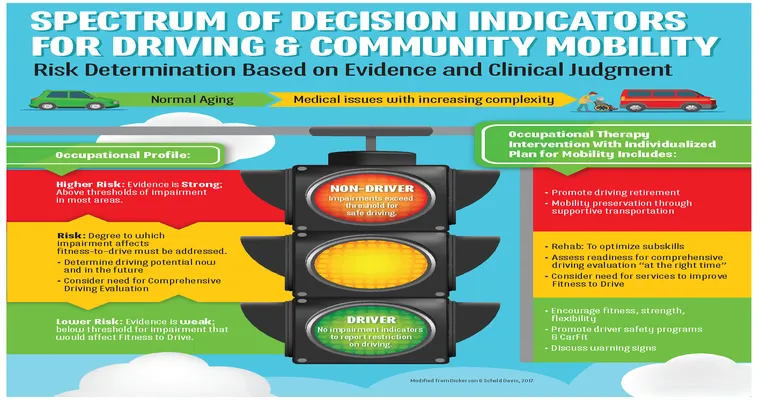As individuals age, various "health issues" can significantly impact their ability to drive safely. For seniors, maintaining independence often means being able to operate a vehicle, but certain "medical conditions", "medications", and "cognitive decline" can pose challenges. Understanding these senior health issues is crucial for promoting safe driving practices and ensuring the well-being of older adults on the road.
One of the most common health issues affecting seniors is "vision impairment". Conditions such as cataracts, glaucoma, and macular degeneration can hinder a senior's ability to see clearly, making it difficult to read road signs, judge distances, and react to changing traffic conditions. Regular eye exams and wearing appropriate corrective lenses can help maintain visual acuity, but seniors should be aware of their limitations and consider alternative transportation options if necessary.
Another significant factor is "mobility limitations". Arthritis, muscle weakness, and other physical ailments can affect a senior's ability to control the vehicle effectively. Difficulty with steering, braking, or using turn signals can lead to dangerous situations on the road. Seniors experiencing mobility issues should consult with their healthcare providers to assess their driving capabilities and explore adaptive driving aids or alternative transportation methods.
Cognitive decline, including conditions like "dementia" and "Alzheimer's disease", poses a serious risk for older drivers. These conditions can impair judgment, reaction time, and the ability to navigate familiar routes. It is vital for family members and caregivers to monitor any signs of cognitive decline and engage in open discussions about driving safety. Cognitive assessments can also help determine whether seniors are still fit to drive.
Medications can also have a profound impact on a senior's ability to drive safely. Many older adults take multiple prescriptions, and some medications can cause side effects such as drowsiness, dizziness, or impaired coordination. It is essential for seniors to understand how their medications may affect their driving and to consult with their doctors about any potential risks.
In addition to these health issues, environmental factors should also be considered. Changes in "weather conditions" can affect driving safety, particularly for seniors who may not have the same reflexes as younger drivers. Rain, snow, and ice can present challenges that require quick decision-making and enhanced driving skills.
To help seniors maintain their driving independence while ensuring safety, several resources are available. Driver rehabilitation specialists can provide assessments and training tailored to the unique needs of older adults. Community programs may offer alternative transportation options, such as ridesharing services or volunteer driver programs, to help seniors get around without relying on their vehicles.
In conclusion, understanding the various "senior health issues" that impact driving is essential for promoting safety on the roads. By being aware of "vision impairment", "mobility limitations", "cognitive decline", and the effects of "medications", seniors and their families can make informed decisions about driving. Regular evaluations and open communication about driving abilities can help ensure that seniors remain safe while enjoying their independence on the road.





